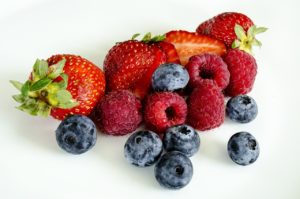Much confusion reigns around what teas are low Fodmap and which are high Fodmap. It’s simple and yet not so simple because of all the extra ingredients manufacturers manage to squeeze into a seemingly basic herbal tea. Watch my video to unravel the mystery around tea.
Transcription of “What teas are low Fodmap?”
Today, I want to talk to you about tea. What tea you can drink and what tea it is best to avoid. A lot of my clients have this question for me. They get very confused around it. The thing with normal tea, of course, is that its low-FODMAP at a weak to average kind of a brew, but it does contain caffeine, which the FODMAP issue doesn’t take into account. So, if you can get decaffeinated, it’s going to be even better, but a little bit of the caffeine in a tea, as long as you only have one maybe two a day, will not hurt you. You can have chai tea, but keep it weak. And that’s the same with dandelion tea. As long as it’s weak, it’s okay. The minute you start to get it stronger, then it’s going to be an issue for us. In fact, a normal strength of chai tea or dandelion tea is going to be high-FODMAP. So, very weak and you’ll get away with it. Green tea is absolutely fine.
And when we get onto herbal teas, it really depends on the ingredients because even something that says ginger and lemon might have licorice in it, for example, which is not okay, so check those ingredients. THIS ONE is fine. Peppermint tea would normally be fine, but if you have reflux, then do not have peppermint tea. And any fruit-based teas could be potentially an issue. One ingredient, in particular, to look out for is chicory root. That is high-FODMAP if that’s an ingredient.
Ones that you definitely cannot have are fennel tea. That’s high-FODMAP. Anything with chicory root is not okay. Oolong tea is high-FODMAP and chamomile tea is also high-FODMAP.
Check out herbal teas in the supermarket, but go right through the ingredient list. Even one that says peppermint tea might have something more than peppermint or mint in it. You’d be surprised at the ingredients they manage to pump into any processed food. You can, of course, make your own herbal teas at home. Get your own mint leaves or ginger. Grate some ginger and put it in a little muslin bag into your tea and seep it there in boiling water for a while, squeeze in a couple of drops of lemon, and you’ve got yourself a delicious cup of herbal tea that is not processed, and that you know will be safe for you. In fact, ginger is really good for our digestion. And peppermint is really good for our IBS too, but as I mentioned before, it’s not good for reflux, so you wouldn’t be able to use that. It actually creates more acid in the stomach, which can help with digestion, but creates reflux.
I hope that has clarified a little bit the question of herbal teas, so don’t just willy-nilly go out and buy herbal teas and think you’re doing the right thing. Unfortunately, like everything in the low-FODMAP diet, it’s not that simple. Good luck with sorting that out and goodbye.




Thank you Suzanne for your very generous and clear information about IBS. You are for me, a dedicated professional, knowledgeable with a gentle manner and without your positive bank of resources I would have given up.